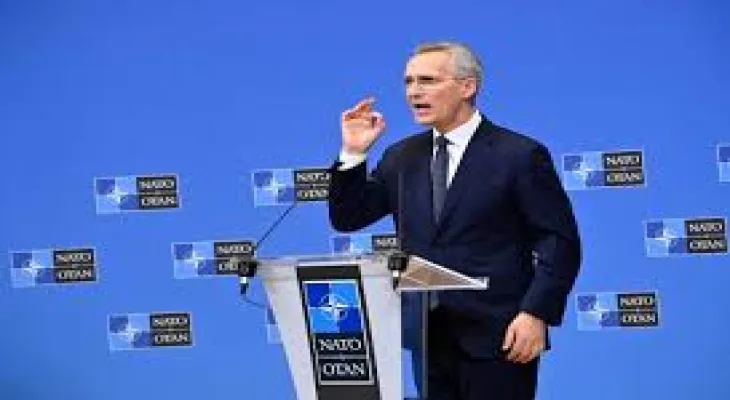Search here
Newspaper
Search here

Arab Canada News
News

Published: February 14, 2024
NATO said on Wednesday that Europe has increased its defense spending and that the United States needs allies, days after former U.S. President Donald Trump hinted that Washington might not protect countries that do not spend enough.
Jens Stoltenberg said at a press conference in Brussels, "I expect 18 allies to spend 2% of their GDP on defense this year," adding that total military spending is expected to set another record year after two years of the full-scale war launched by Russia against Ukraine.
This figure was higher than last year, when 11 of the 31 NATO members were expected to reach the agreed target.
Trump shocked Europeans on Saturday when he implicitly suggested he would encourage Russia to "do what they want" regarding NATO allies who have not spent enough on defense.
Responding to journalists' questions related to the controversy over Trump's statements ahead of the NATO ministers' meeting, Stoltenberg said the United States knows how important the defense alliance is for its security.
He added, “The United States has never fought a war alone.”
He confirmed that the criticisms we hear are not about NATO itself, but about NATO allies not spending enough on NATO, adding that the new increase in military spending by European allies is proof that this message has been heard.
Stoltenberg added that European NATO member countries will invest a total of 380 billion U.S. dollars in defense this year.
Canada far from the target
In a historic first since the end of the Cold War, Berlin will reach the 2 percent goal this year for the first time.
The German government has allocated the equivalent of 71.8 billion euros (104 billion Canadian dollars) for defense spending this year through both regular and special budget expenditures. However, the total gross defense spending remains secret.
In 2023, 11 alliance members were expected to meet the 2% target according to previous NATO estimates - Poland, the United States, Greece, Estonia, Lithuania, Finland, Romania, Hungary, Latvia, Britain, and Slovakia.
Kurt Volker, former U.S. ambassador to NATO under George W. Bush and Barack Obama, told CBC News on Tuesday that the war in Ukraine and Russia’s troop buildup near the borders of other neighboring countries should motivate the alliance.
Volker continued: "Regardless of whether it is Trump, Biden, or someone else, all European countries, all NATO members, really need to boost their defense spending." "Poland has done that; Poland is spending four percent of its GDP on defense this year. Others have to do the same because we are in a very serious security situation in Europe now."
Sweden, which is looking to join the alliance but has not yet received Hungary's approval, announced last September plans to boost its planned 2024 defense budget to reach 2.1 percent of its expected GDP.
Canadian military spending is estimated to be between 1.3 and 1.4 percent of GDP.
Defense Minister Bill Blair did not specifically address Canada's military spending in brief remarks to reporters on Tuesday but seemed to downplay Trump's weekend remarks.
Blair said, "There are political elections and debates happening in another country, and we will listen to rhetorical statements." "The best deterrent to a bully is strength, and we are investing in that strength."
Not "delinquent"
Although Trump described countries below the standard as "delinquent," the 2% ratio refers to the defense commitment of each country individually, not their contribution to NATO's joint defense fund.
Also, some analysts have said that the fixed metric can present an incomplete picture of a country's military situation, its research and development capabilities, and other capabilities.
"Spending 2 percent says very little about the actual military capabilities of any country, such as its readiness, deployability, and ability to deploy
sustainment levels," said Carnegie Europe research center in a 2015 report: "the quality of the forces it can deploy." It added: "It’s also silent on the state's willingness to deploy forces and risk once those forces are deployed. Nor does it assess whether the state is spending its limited resources wisely."
While this issue has angered Trump, his predecessors in the United States, Barack Obama and George W. Bush, urged alliance members to increase their domestic defense spending.
Comments